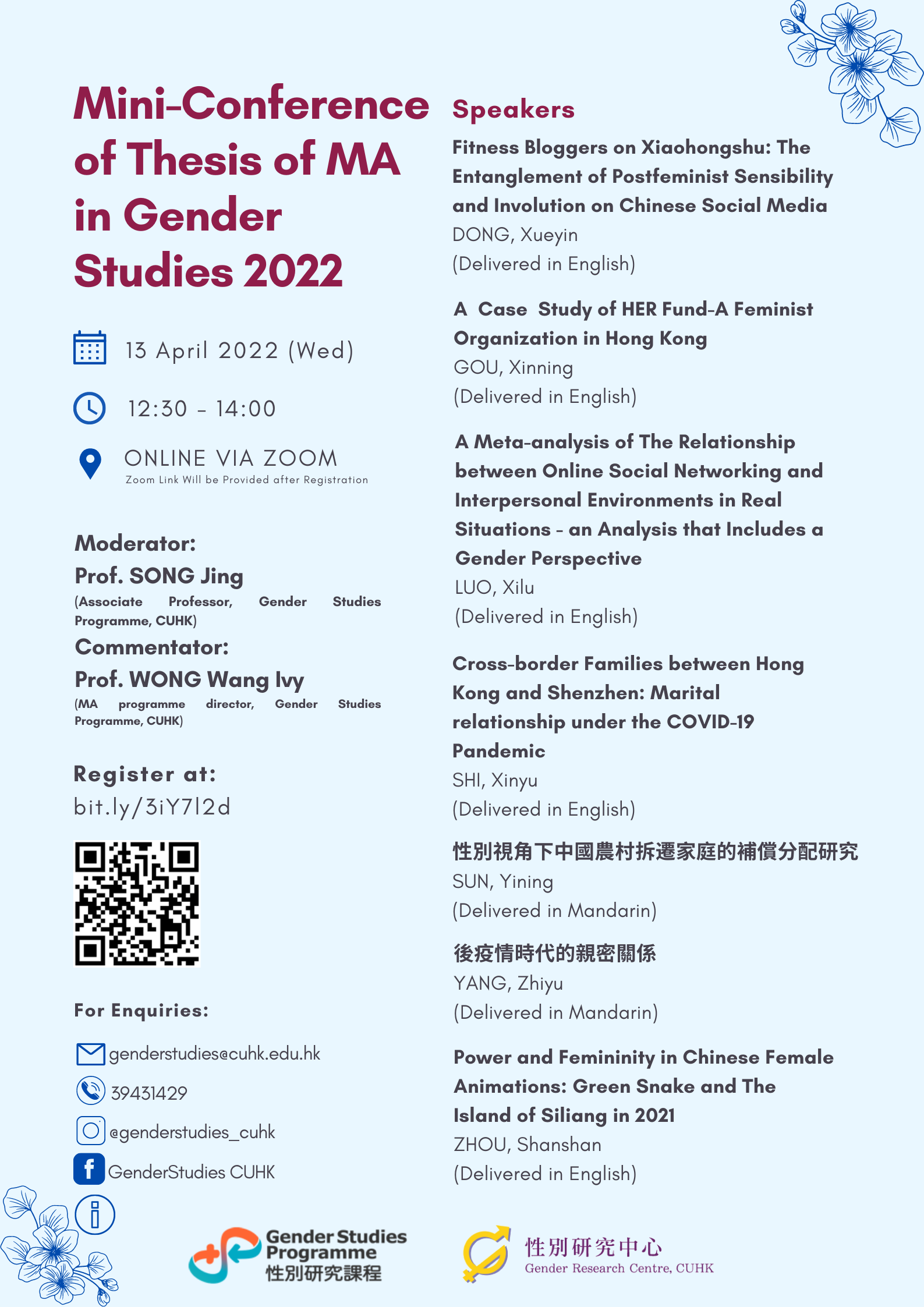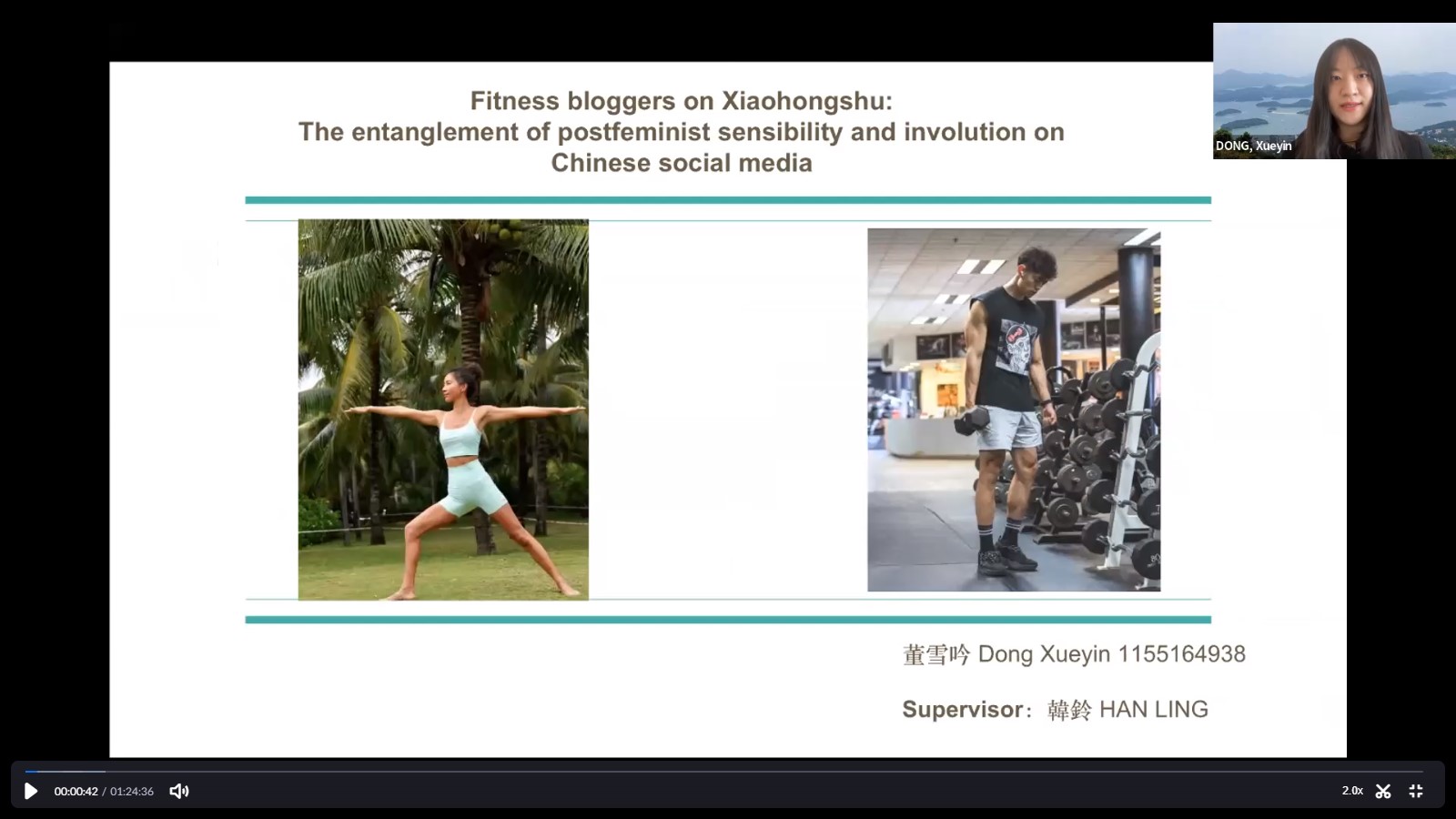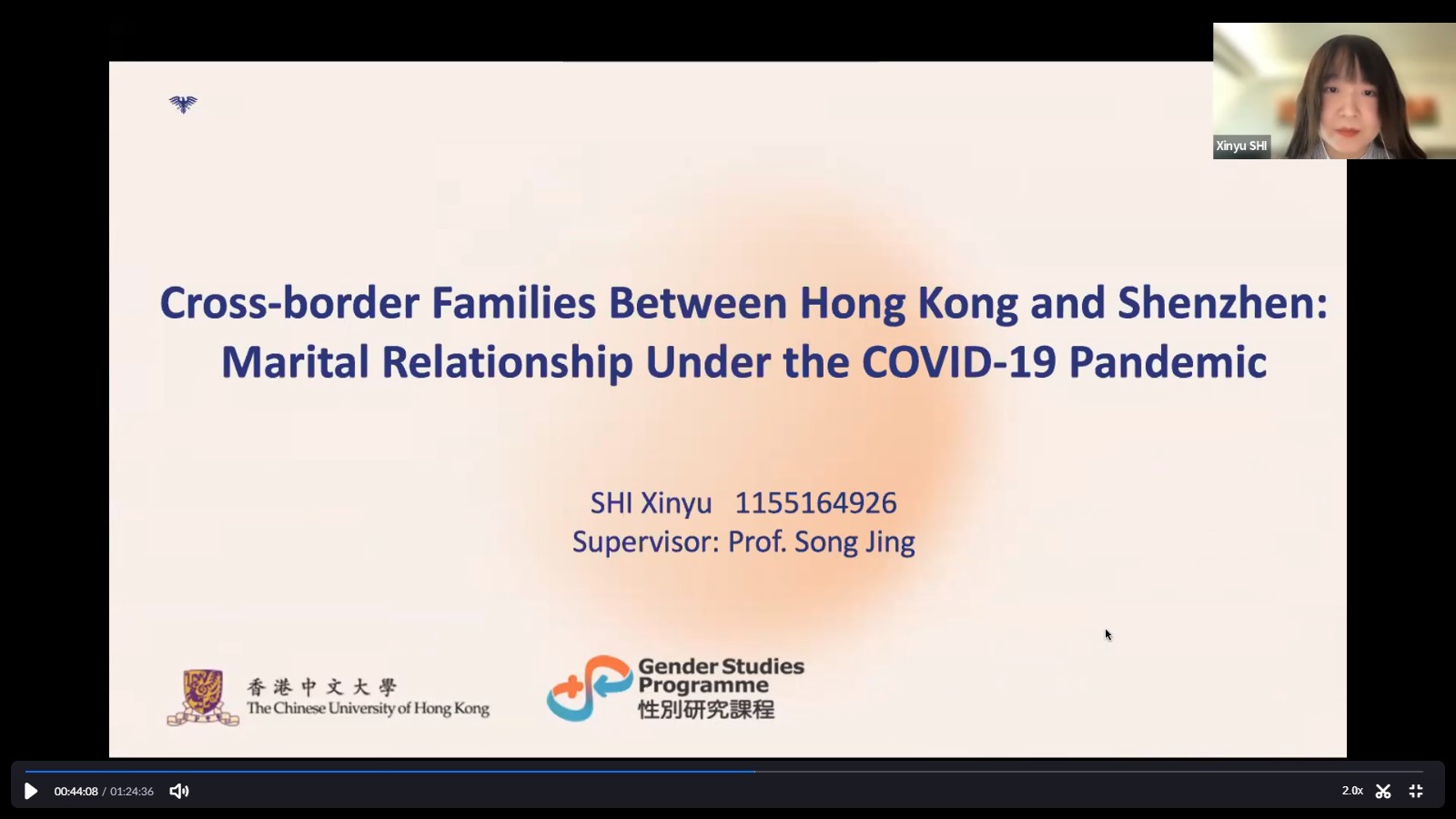In the Mini-Conference on Apr 13, seven MA students from the Gender Studies Programme presented their thesis research projects.
Ms. DONG Xueyin analysed 392 blog posts from six Xiaohongshu fitness bloggers in terms of their adherence to postfeminist sensibility and involution. It was found that female bloggers talked more about gender inequality and expressed more anxiety under involution, while male bloggers used less postfeminist emotional labor and acted more in line with the requirements of involution.
Ms. GOU Xinning conducted a case study of HER fund, the only non-governmental women’s foundation in Hong Kong. From her participatory observations of HER fund’s workspace and activities, she found a flattened hierarchy among the staffs in HER fund and the visitors who joined their workshop. Besides, HER fund also created a warm, personal, and hospitable emotion culture and paid attention to intersectionality, by taking care of women from different backgrounds and inviting them to share their experiences.
Ms. LUO Xilu is conducting a meta-analysis to explore the relationship between online socialization and depression in youth from a gender perspective. By extracting the effect values from relevant empirical studies, she aims to understand to what extent and how online socialization may affect youth depression. She is currently working on the data cleaning procedure, and she hypothesizes that the effect would be moderated by the type of online social media and the background of youth subjects.
Ms. SUN Yining studied how families undergone demolition and relocation in rural China distribute their compensation properties to sons and daughters. Interviewing 18 families from the Li village of Shandong province, she found most parents still hold strong patriarchal beliefs and tend to distribute their houses to sons but not daughters. Her analysis provides theoretical and practical implications for discussing the impact of urbanization on patriarchy.
Ms. SHI Xinyu obtained secondary data and conducted in-depth interviews to study how Hong Kong-Shenzhen cross-border married couples undergoing prolonged separation, especially the wives, were affected by the social restriction policy during COVID-19. She categorized these couples into four types based on husband’s and wife’s career- vs. family-orientation. It was concluded that these women are facing increased domestic burdens in this period and the differences among the four types of couples reflect different levels of influence of individualism and familism.
Ms. YANG Zhiyu analysed secondary survey data and conducted in-depth interviews with women currently in a cross-border relationship, to examine their coping strategies and decision-making process for migration under the COVID-19 pandemic. Applying the tied migration theory and relational turbulence theory as her analytical framework, she suggested that the policy-enforced separation closely related to challenges and conflicts in intimate relationships, and the different coping strategies reflected not only economic considerations but also the couple’s gendered beliefs and their relationship status.
Ms. ZHOU Shanshan analysed and compared the gender-related contents in two recent Chinese female animations, Green Snake and The Island of Siliang, to demonstrate how power and femininity perform and develop in Chinese animated films. She found that the female protagonists in both films showed a mix of traditional feminine and masculine characteristics but were interpreted differently by male and female directors. The female-directed animation The Island of Siliang depicted its female protagonist in an imperfect but more realistic way, while the one in the male-directed animation Green Snake appeared to be scantily clad with an exaggerated feminine body shape, reflecting the male gaze.
Finally, Prof. Ivy Wong, the MA programme director, commented that all the presented topics were very clear and interesting, and had covered a wide range of research areas with impressively diverse methodologies from case study to meta-analysis. She also encouraged the thesis students to aim high and consider getting their research published. Congratulations to the presenters and wish you all the best with your research projects!
Written by: Shi Yun





A
A
A
Contact Us